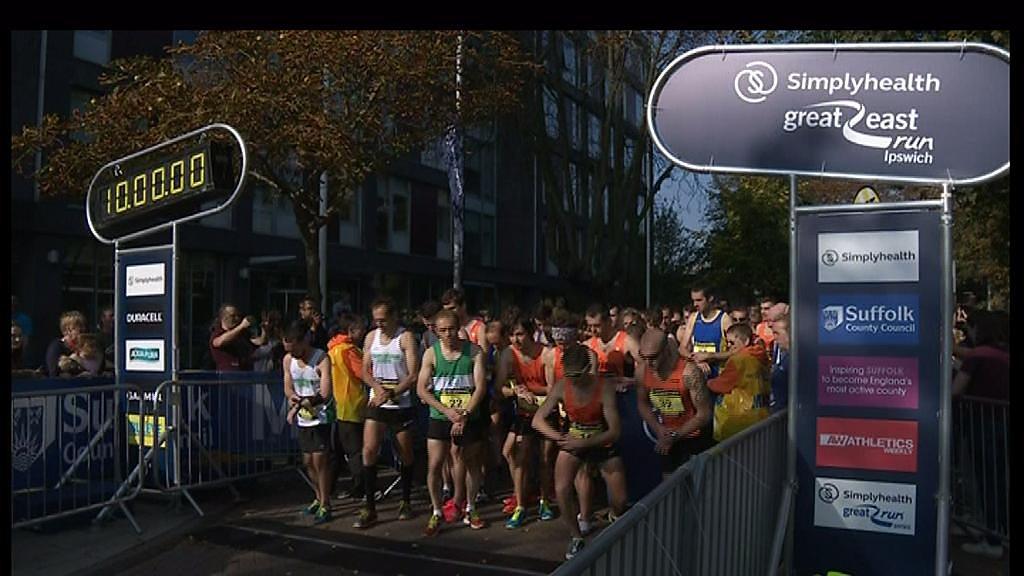Ipswich Half Marathon runners thanked for saving man's life
- Published
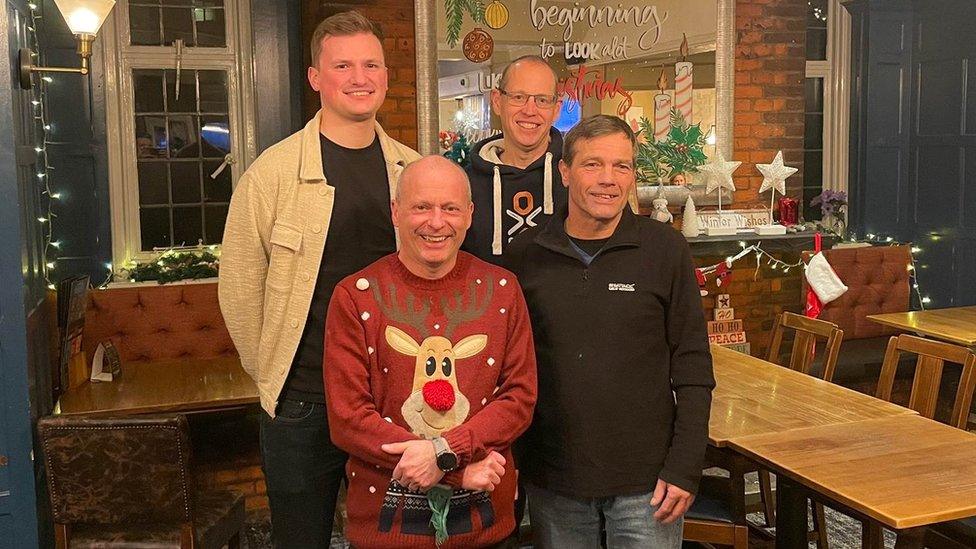
John Thurkettle, front right, and his family have thanked Ben Solway, front left, David Smith, back left, and Kevin Ward for helping to save his life
The family of a man who had a cardiac arrest during a half marathon has thanked those who helped save his life.
John Thurkettle, 60, was taking part in the Ipswich Half Marathon on 23 October when he collapsed.
Runners Kevin Ward, Ben Solway and David Smith came to his aid and carried out cardiopulmonary resuscitation (CPR) until emergency services arrived.
Mr Thurkettle's son James said: "I have no doubt in mind that they kept him alive."
The 29-year-old said tackling the 13.1-mile (21km) distance was "nothing out of the ordinary" for his builder dad who had run many half marathons over the years.
However, as James, his mum Denise and one of his sisters waited for John to cross the finish line at Ipswich Town's Portman Road stadium, little did they know he had collapsed at mile 11 until they received a phone call.
"For us it was devastating," said James.
"We were under the assumption he would be coming around the corner at any moment; it caught us completely off-guard; we went into panic mode."
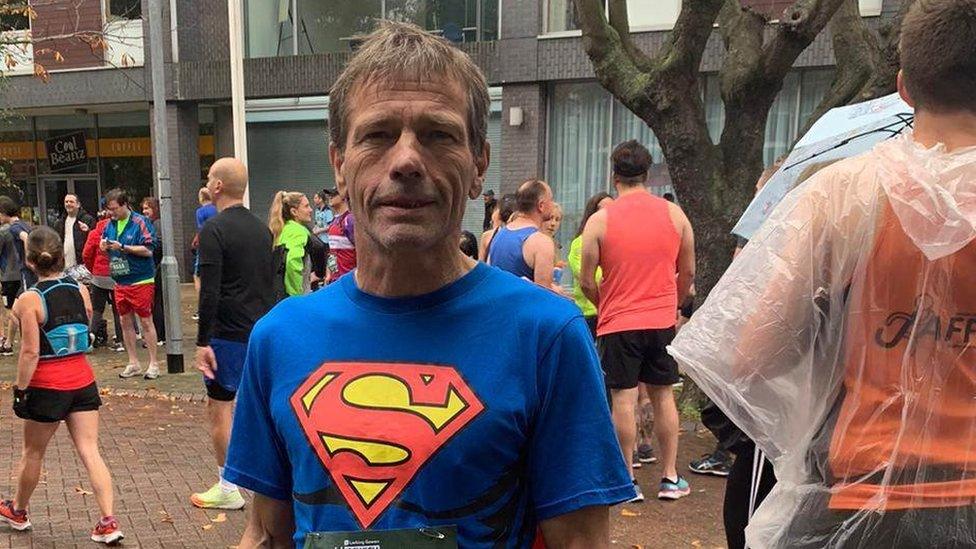
Running a half marathon was "nothing out of the ordinary" for John Thurkettle, who was dressed as superman for the event, his son said
Mr Ward, who is first aid trained, said he, off-duty GP Mr Solway, and Mr Smith, a physio, administered CPR as soon as they realised John had stopped breathing and his pulse had stopped.
He said John started breathing and they felt a pulse as the paramedics arrived and after further treatment and monitoring from the emergency services, he was taken to Ipswich Hospital.
"Dad couldn't have been more lucky in terms of the people he was surrounded by," James said.
"He was blessed enough to be surrounded by people who had the knowledge of what to do and were willing to do it."
James said his father had had a seizure which led to a heart attack and he went into cardiac arrest - which occurs when the heart suddenly stops pumping blood around the body, leading someone to stop breathing.
Father-of-four John spent two or three weeks in hospital where he was diagnosed with an underlying heart condition, but he was now "up and about" at home and awaiting further treatment.
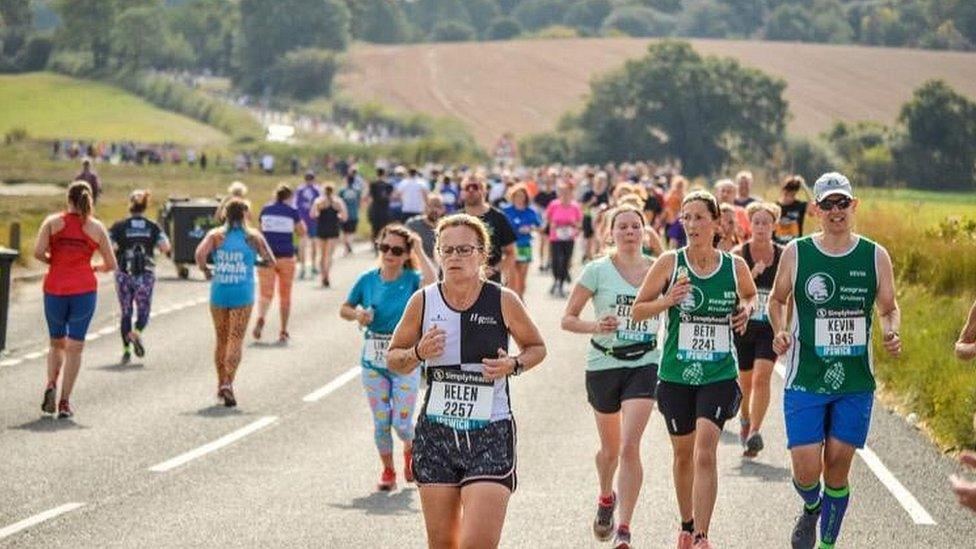
The half marathon sees runners tackle Freston hill before turning round and heading back under the Orwell Bridge into Ipswich
James said the story highlighted how "vital" it was for people to be trained in CPR.
Mr Ward, from Kesgrave, said he was "desperately keen" to get as many people as possible to have the training.
"And to highlight the idea that actually having a go is always better than doing nothing, when it's likely the only outcome for someone who doesn't get help is death," he added.
Together with clubmates, Mr Ward is organising CPR training for his running club - Kesgrave Kruisers.

Key facts about resuscitation
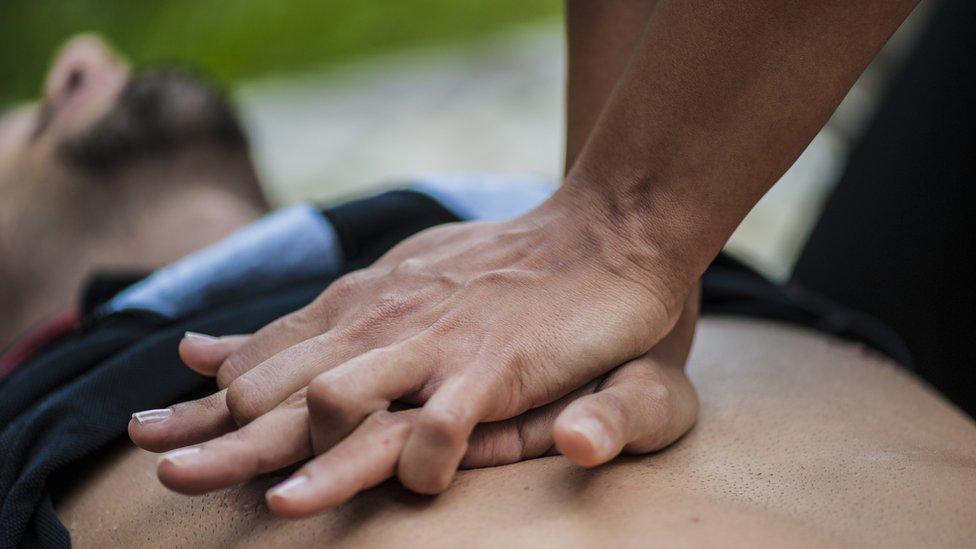
When the heart stops suddenly, it's critical to start chest compressions quickly and then shock the heart with a defibrillator
In the UK, there are 60,000 cases of sudden cardiac arrest (SCA) every year
Fewer than one person in 10 survives when an SCA occurs out of hospital
The victim's chance of survival falls by about 10% with every minute that defibrillation is delayed
CPR and the use of an automated external defibrillator significantly improve survival
Performing CPR can more than double a person's chances of survival in some cases
Source: Resuscitation Council UK, external and BBC

Find BBC News: East of England on Facebook, external, Instagram, external and Twitter, external. If you have a story suggestion email eastofenglandnews@bbc.co.uk
- Published14 September 2022
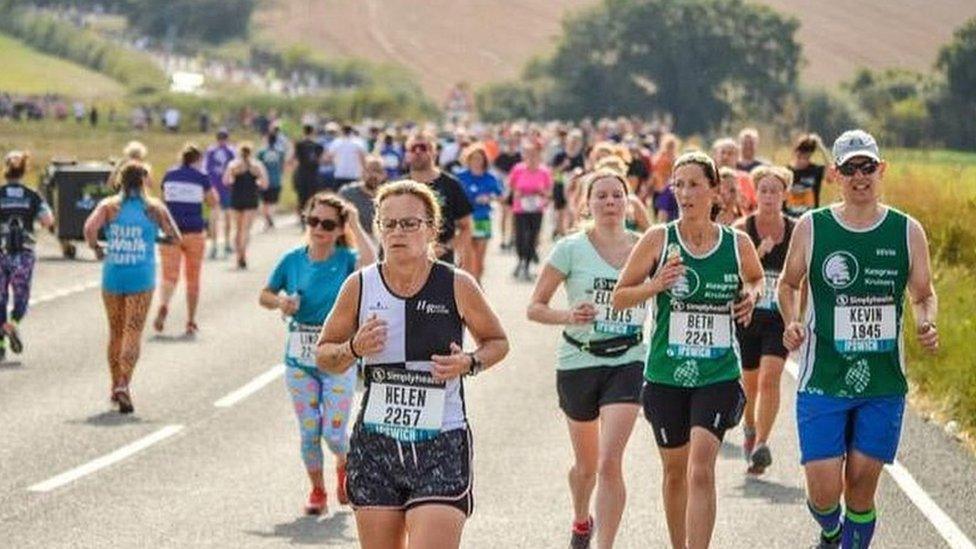
- Published9 September 2022

- Published24 September 2017
